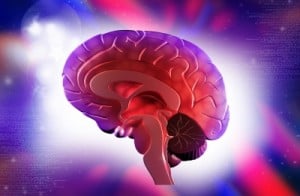 One of the most difficult life experiences every person will encounter is coping with the death of a loved one. Death triggers emotional grief that may be so intense and consuming that even the thought of living life normally seems absolutely impossible. There is no right way to grieve, and everyone grieves in their own unique ways. While it is perfectly natural to be sad after losing a loved one, many times grief can lead to depression or make already existing anxiety and/or depression substantially worse.
One of the most difficult life experiences every person will encounter is coping with the death of a loved one. Death triggers emotional grief that may be so intense and consuming that even the thought of living life normally seems absolutely impossible. There is no right way to grieve, and everyone grieves in their own unique ways. While it is perfectly natural to be sad after losing a loved one, many times grief can lead to depression or make already existing anxiety and/or depression substantially worse.
Not everyone who grieves will become depressed as a result, however grief can be a major trigger, particularly for those who are more prone to depression or have a history of depression. Everyone experiences varied symptoms of grief, however many of these symptoms are similar to those of depression, including debilitating sadness, changes in sleep habits, appetite loss or gain, and losing interest in activities once enjoyed. Grief typically affects people in waves with symptoms fluctuating through time and eventually lessening. However, when grief becomes so intense that is starts interfering with a person’s ability to live their life normally for an extended period following a death, treatment may be necessary.
Symptoms of grief should improve over time, and not worsen. If a person experiences any of the following symptoms after a loved one passes away and these symptoms only worsen over time, this person may be suffering from grief-induced depression:
- Constantly thinking/longing for the loved one who passed
- Difficulty focusing on anything other than sad thoughts
- Difficulty accepting loss
- Difficulty remembering good times/positive memories of loved one
- Feelings of hopelessness
- Feeling as though life has no meaning
- Difficulty completing normal, every day tasks
- Becoming unable to take care of oneself physically
- Difficulty trusting others, even those once trusted
Neurofeedback works to calm the brain to help improve functioning. When the brain is functioning more calmly, the person feels less overwhelmed and more capable of functioning normally in their every day lives.
In addition to neurofeedback, therapy is also recommended for people struggling to accept the loss of a loved one.
First image courtesy of Stuart Miles at www.FreeDigitalPhotos.net.
Second image courtesy of nenetus at www.FreeDigitalPhotos.net.









